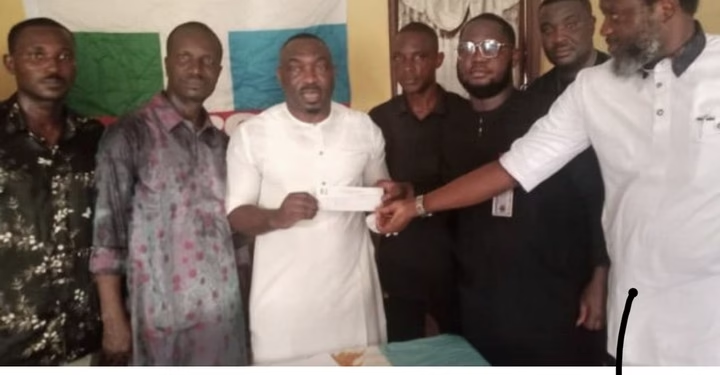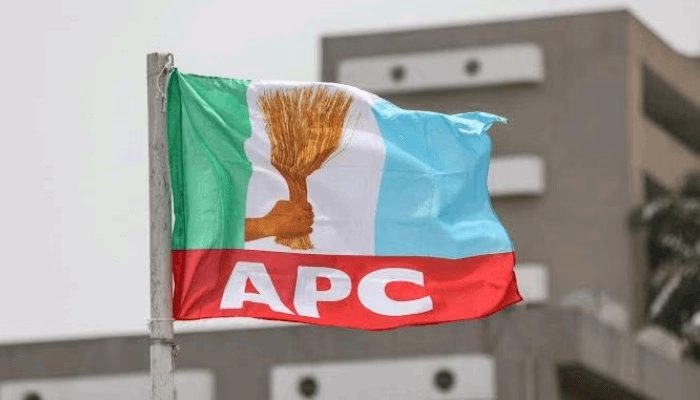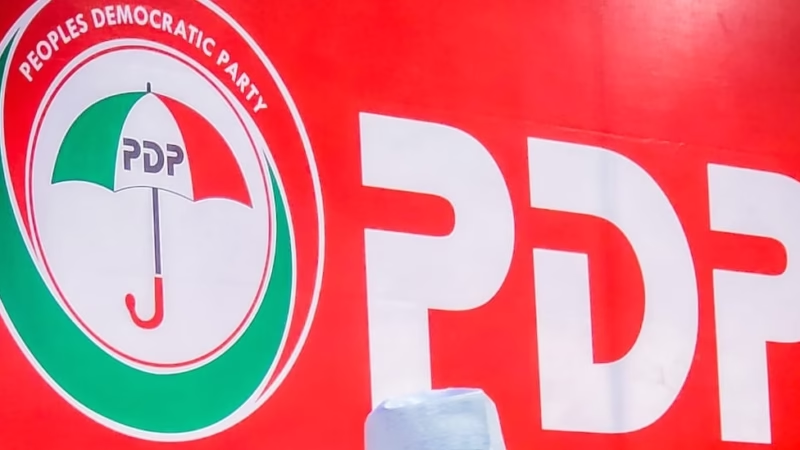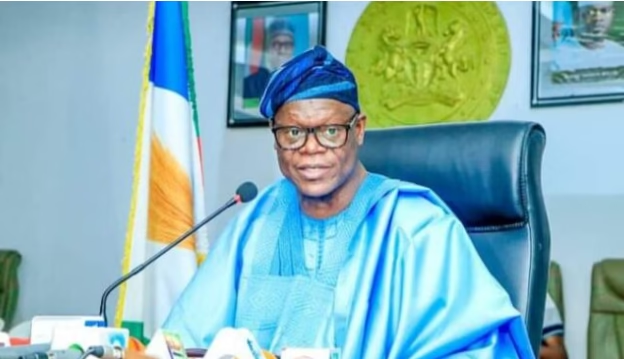| The elder statesman said, “More than N700 billion in cash bribes were paid by citizens to public officials in 2023. Most bribes are paid in the street or a public official’s office. “Private sector bribery is increasing but continues to be less prevalent than in the public sector. Corruption goes with power; therefore, to hold any useful discussion of corruption, we must first locate it where it properly belongs – in the ranks of the powerful. “Corruption in Nigeria has passed the alarming and entered the fatal stage, and Nigeria will die if we keep pretending that she is only slightly indisposed.’’ He added, “Ranked 150 out of 180 countries in the Transparency International 2022 Corruption Perceptions Index,1 Nigeria’s ranking places it in the bottom 20 per cent of the comity of nations and illustrates how systemic and embedded corruption is in the country. It is, in my opinion, and those of many, the most serious developmental challenge to the nation.”
Olusegun Obasanjo, the former president, was attacked by the presidency on Monday for his assertion that corruption in the nation has reached a deadly level.
Obasanjo’s demand that Prof. Mahmood Yakubu, the chairman of the Independent National Electoral Commission, be fired for his handling of the 2023 election, which he called a travesty, was also criticized by the presidency.
The former president called for shorter terms for INEC officials and a stricter screening procedure to avoid appointing partisans in his speech, “Leadership failure and state capture in Nigeria.”
He criticized President Bola Tinubu’s administration, claiming that corruption remains one of the biggest issues facing Nigerians.
Onanuga said, “It is hypocrisy writ large when a man who presided over the worst election in Nigeria demands the sack of the leadership of the Independent National Electoral Commission.”
He added, “After wasting billions of naira on a failed third-term project in 2007, Chief Obasanjo hurriedly organised a sham electoral process that would go down in history as the most fraudulent election held in Nigeria since 1960.
“The beneficiary of the sham election, Umaru Yar’adua, admitted that the election was seriously flawed and, as Justice Muhammed Uwais’ panel recommended, worked towards electoral reforms.”
The expectations of an elder statesman to participate in a productive discussion on achieving national progress were overshadowed, according to the Presidency, by the former leader’s tendency to disparage every succeeding administration.
“In his latest critique of the administration of President Muhammadu Buhari, whom he pejoratively called ‘Baba Go Slow’ and President Bola Tinubu, who he tagged ‘Emilokan’, Chief Obasanjo used the platform provided by Chinua Achebe Leadership Forum at Yale University to unfurl his latest treatise on leadership and public morality. He also used the forum to write off Nigeria as a failing country.’’
“The irony of Chief Obasanjo using the platform that celebrates Achebe to sermonise on the ideals of good governance, statecraft, economic management, and corruption should be apparent to discerning minds.
“When he was alive, Chinua Achebe was a universally acclaimed moral, cultural and literary icon with scant regard for Obasanjo,” the statement added.
The Presidency cited Achebe’s rejection of the third highest national honour bestowed on him by the Obasanjo-led administration in 2004 on the grounds of the prevalence of abuse of power, corruption, poor leadership, and, in particular, “state-sponsored brigandage endorsed by Chief Obasanjo in Achebe’s home state of Anambra.”
“In rejecting the 2004 national honour by the Obasanjo administration, Achebe declared: ‘Nigeria’s condition today under your watch is…too dangerous for silence. I must register my disappointment and protest by declining to accept the high honour awarded me in the 2004 honours list,’” the statement read.
The Presidency also cited the unconstitutional impeachment of four Peoples Democratic Party governors – Joshua Dariye of Plateau, Rasheed Ladoja of Oyo, Ayodele Fayose of Ekiti and Diepreye Alamieyeseigha of Bayelsa.
It argued, “A man under whose watch all of these egregious infractions occurred should certainly not be the one to give any lecture on leadership and corruption.
“He should not be taken seriously as he reeks of profound hypocrisy of the worst form.”
Onanuga also suggested that Obasanjo’s self-acclaimed reputation as an economic reformer did not align with his record in office.
The statement pointed out that many challenges Obasanjo highlighted in his Yale address remain unresolved legacies of his administration.
It noted Obasanjo’s admission that his administration failed to prioritise gas development, a sector now receiving attention under the Tinubu administration.
It also acknowledged that Obasanjo’s tenure benefited from rising crude oil prices, which peaked during that period.
Still, it argued that poor economic decisions, including the hasty repayment of $15bn in Paris Club debt while neglecting critical infrastructure, laid the foundation for subsequent economic challenges.
Furthermore, Onanuga faulted Obasanjo for failing to address Nigeria’s infrastructural decay, including federal roads such as the Lagos-Ibadan Expressway and the Lagos-Abeokuta Road.
The presidential aide also accused him of undermining public universities by capitalising on their deficiencies to establish private institutions.
The Presidency contrasted this with the security sector, where it credited the Buhari administration with modernising the Armed Forces through substantial investments in equipment and strategy, a trend it claims President Tinubu has sustained.
It also linked the rise of militancy and kidnapping to Obasanjo’s administration, asserting that his tenure allowed such security issues to take root and expand.
On matters of integrity, honesty, and morality in public leadership, it said Obasanjo is “certainly not a paragon of virtue for anyone to model after.”
“Nigerians can still remember the messy public spat between Chief Obasanjo and his then-vice president, Atiku Abubakar, over PTDF money that led to a Senate Public Hearing in 2004.
“The sordid details of the public hearing included unsettling evidence of how Obasanjo instructed his Vice President to buy Sport Utility Vehicles for his mistresses with PTDF funds.
“There was also the Halliburton bribe scandal, which the US Congress probe revealed. Bribe payments were made to the highest political authorities at the Villa while Obasanjo was in charge,” the statement read.
It said Nigerians would also remember how the Obasanjo administration invested $16bn in electricity, which left the country in utter darkness.
The Presidency added, “The colossal amount spent on power was so embarrassing that President Umaru Yar’Adua, Obasanjo’s successor, ordered a probe. Similarly, Obasanjo’s privatisation programme was scandalous. It did not deliver real value for the country.
“His administration cheaply sold national assets to cronies who stripped the assets of the state-owned enterprises. A case in point was the aluminium smelter company ALSCON in Ikot-Abasi, Akwa-Ibom State, built by the military government at the princely sum of $ 3.2bn. It was sold for 130 million dollars.
“Obasanjo also sank money into Turn Around Maintenance of our refineries, which never worked, leading to the massive importation of refined petroleum products.”
Onanuga referenced accusations of gross abuse of office during Obasanjo’s tenure, pointing to a petition filed by former Abia State Governor Orji Uzor Kalu, a member of Obasanjo’s political party, to the Economic and Financial Crimes Commission.
He added, “If Chief Obasanjo had addressed the many problems he critiqued in his poorly written Yale lecture when he ruled Nigeria for eight years, President Buhari and President Tinubu would have had a much lighter burden of fixing the country.
“While the Tinubu administration diligently works to overcome the country’s economic challenges, it would be better and more advisable for former President Obasanjo to temper his self-righteousness in his public discussions regarding our nation’s temporary difficulties.
“Instead, his remaining years would be better spent reflecting on the missed opportunities during his own time in leadership, both as military head of state and civilian president.” |
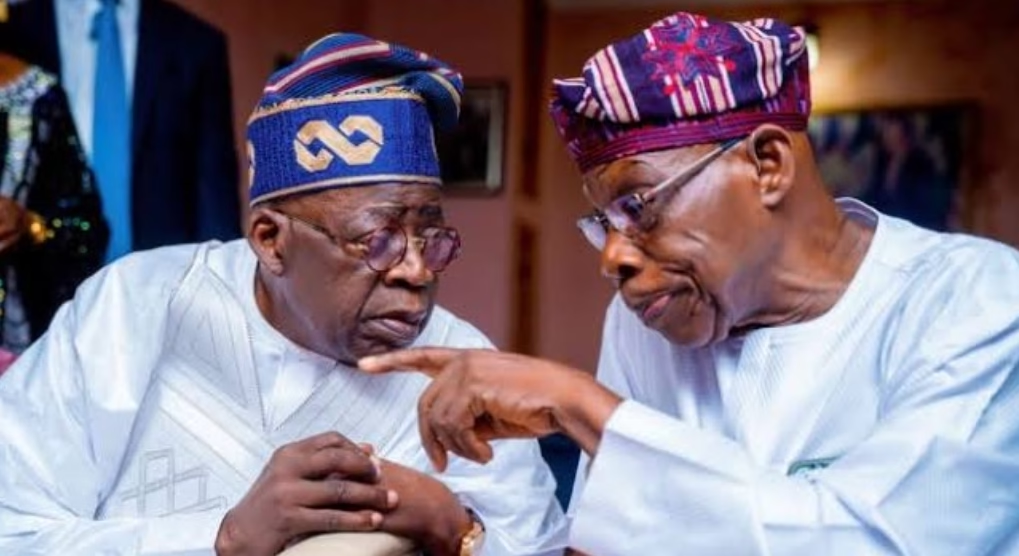
![]()
